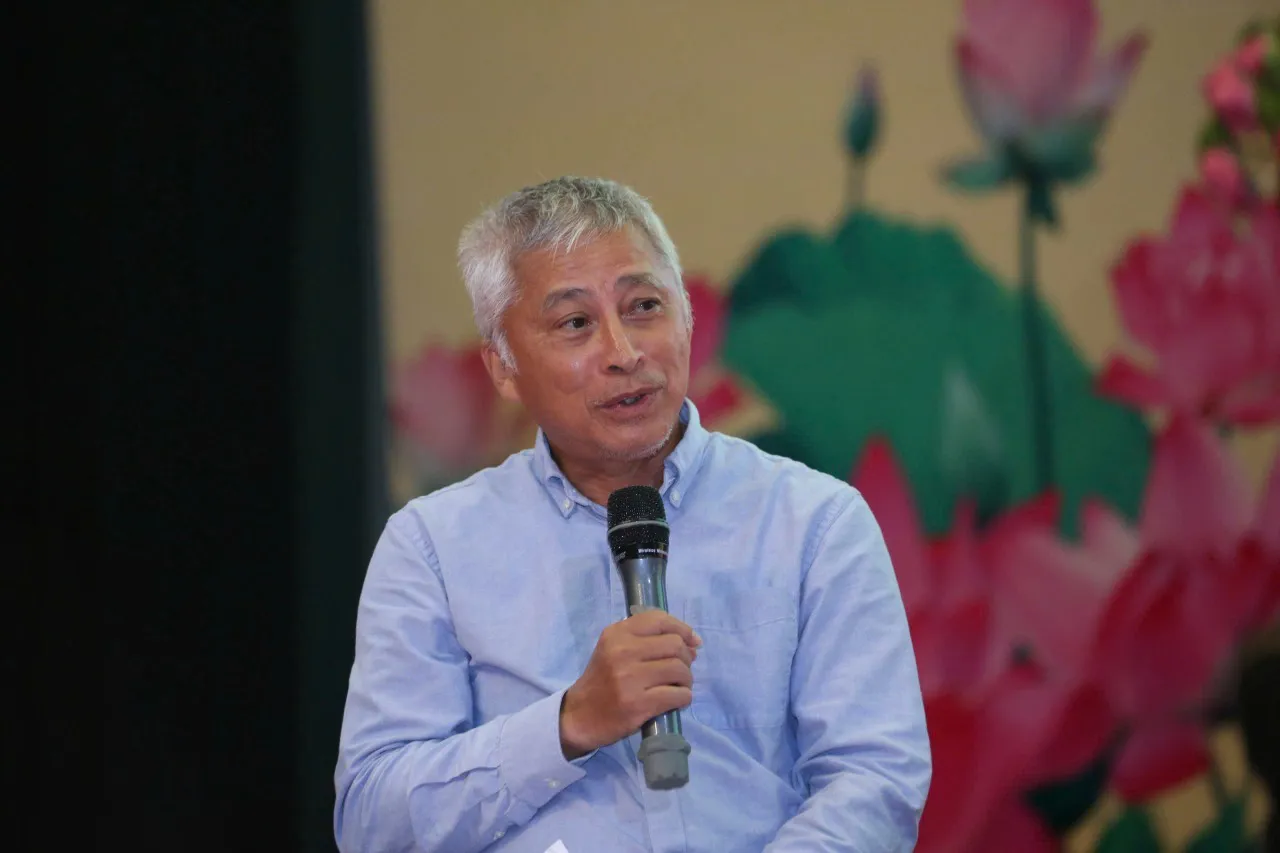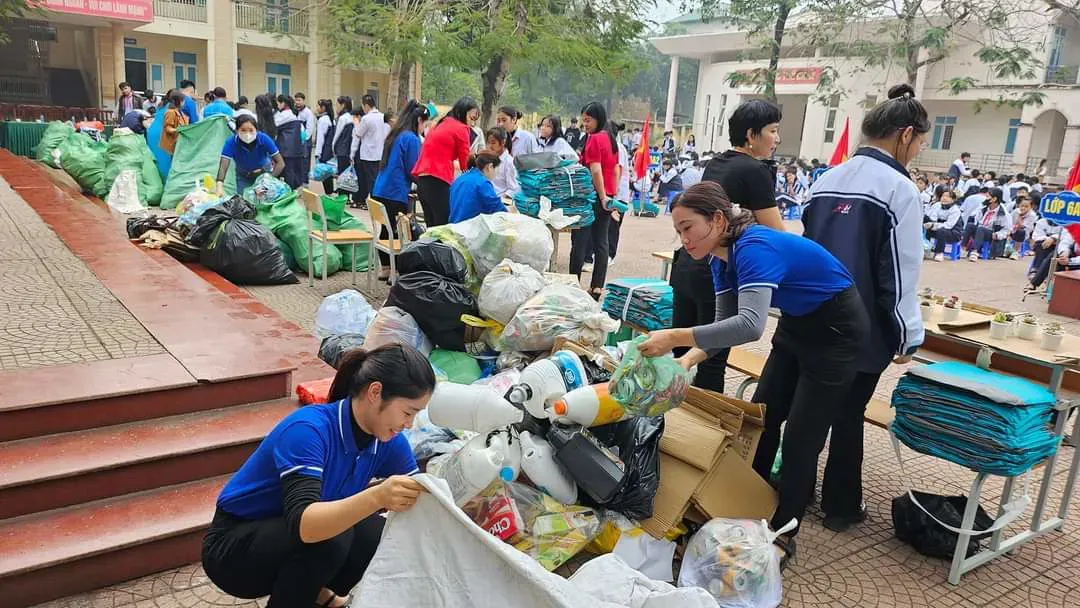Hanoi pursues sustainable waste sorting inspired by global models
As Hanoi aims to develop consistent waste sorting habits, long-term policies, public awareness and economic incentives are seen as key to building a sustainable waste classification system.
Waste classification and treatment have become major challenges for many cities, including Hanoi. Despite several pilot models, developing the habit of sorting waste at source takes time and requires strong public support.
Dr. Hoang Duong Tung, Chairman of the Vietnam Clean Air Network, spoke with The Hanoi Times about international experiences in waste classification.

Waste sorting at the source requires a well-planned and practical roadmap. Photo: Nguyen Quy/The Hanoi Times.
What helps other countries resolve difficulties in classifying waste at source and build a sustainable green lifestyle?
Sorting waste at source is a long and complex process that requires consistent policies and joint action across society.
In many developed countries, especially in Europe, this process began decades ago and took 10 to 15 years to yield stable results. Their success comes from a systematic approach based on clear policies, detailed guidelines and practical incentives that engage every member of society.
When people see direct benefits such as cleaner neighborhoods, businesses find profit opportunities in recycling and local authorities reduce costs, the whole system operates more effectively.
Successful countries stay consistent in their implementation. For them, waste classification is part of a long-term effort to shape a green lifestyle built on education, law and technology.
Students learn waste sorting at school, local governments organize awareness campaigns and cities apply technology to improve collection, monitoring and recycling. These efforts form an environmentally responsible way of living.
When authorities maintain steady policies, clear communication and strict supervision, citizens naturally form the habit of sorting waste as part of daily life.
What international practices do you think Vietnam and Hanoi can learn and apply?
China offers valuable lessons as it shares cultural and social similarities with Vietnam. The country’s approach can serve as a realistic model for Hanoi.
China enforces clear standards for waste classification, dividing it into categories such as food waste, recyclable waste and hazardous waste. Color-coded bins and detailed guidance help people sort waste correctly.
Local authorities distribute leaflets, organize contests and develop mobile apps to guide residents. Waste collectors can reject unclassified waste, creating accountability and discipline from the start.

Dr. Hoang Duong Tung, Chairman of the Vietnam Clean Air Network.
China combines administrative policies with economic mechanisms. The government adjusts collection and treatment fees to promote efficiency and innovation.
Businesses can access long-term contracts and loans to invest in modern recycling technology. They receive payment based on properly sorted and treated waste rather than total volume, motivating both enterprises and citizens to reduce waste and increase recycling.
To manage food waste, China has introduced tax incentives, low-interest loans and land support to encourage investment in organic waste treatment plants. Many companies now produce fertilizers, biogas and animal feed from organic waste.
These lessons are valuable for Vietnam and Hanoi. Without clear policies and fair pricing mechanisms, businesses face challenges making long-term investments. Meanwhile, collection standards and procedures change slowly while waste volumes keep rising.
To improve efficiency, Hanoi should update its pricing systems, bidding procedures and public service contracts to attract private investment in modern equipment, technology and skilled workers. When policies stay consistent, benefits remain fair and responsibilities are clear, Hanoi can run an effective and sustainable waste classification system.
What should Hanoi do to make waste sorting a lasting and sustainable habit?
Hanoi has introduced several pilot models, but many have not lasted. The main reasons include unclear mechanisms and weak incentives for citizens and businesses to participate actively.
The city should issue detailed regulations that define waste categories, collection schedules and bin types, along with illustrated guidance for residents. Communication campaigns must be regular, clear and community-based. When people understand and find waste sorting simple, they will keep doing it.
Hanoi should create incentives that encourage participation. Citizens need to see real benefits such as cleaner surroundings, improved neighborhoods or lower collection fees when they sort waste correctly.
Local authorities should help businesses access preferential loans and sign long-term contracts. Reforming public sanitation services should become part of broader urban management reform to save budget and attract private participation.
The city must also change public attitudes toward waste. Waste is a resource that can be recycled, reused and create value. Proper classification turns organic waste into fertilizer and energy, recyclables into manufacturing materials and ensures hazardous waste is safely treated. This approach reduces landfills, conserves resources and protects the environment.

A waste sorting event in Son Tay Ward, Hanoi. Photo: Nguyen Quy/The Hanoi Times
When citizens understand that waste sorting protects the environment, they will willingly maintain this habit and build a sustainable lifestyle.
To make this habit last, Hanoi must view waste sorting as a long-term program. Policies must stay consistent, supervision must be regular and coordination among government, communities and departments must be close.
When the entire system works together to reduce waste, increase recycling and improve the environment, waste sorting at source will naturally become part of urban life.
Hanoi aims to enhance waste collection and treatment, reduce waste generation and promote a circular economy where waste becomes a valuable community resource. When citizens, businesses and authorities share common goals and responsibilities, waste sorting will bring long-term benefits to society.
Thank you for your time!








